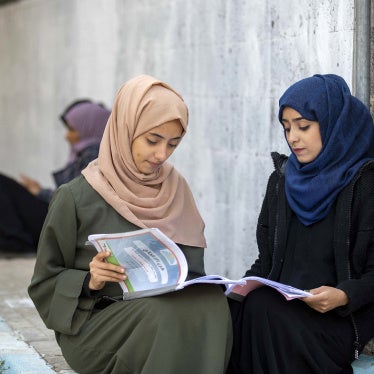All couples hope their marriages will work out and they will live happily ever after. But the truth is that many relationships end in divorce and Lebanese couples are no exception. According to a 2012 study by the Lebanese Central Administration of Statistics, there were almost 6,000 divorces in 2010. The issue for these couples and for society at large is how to ensure a fair separation that guarantees the rights of each spouse and protects their children.
On that front, Lebanon is failing miserably to ensure fair treatment of women. It is widely known that Lebanon does not have a civil code regulating personal status matters. Instead, there are 15 separate personal status laws for the different recognized religious communities, which are administered by separate religious courts. Human Rights Watch (HRW) recently reviewed 447 legal judgments issued by these religious courts to examine how they handle divorce, child custody and financial issues emanating from separations or divorce. The cases, dating from 2009–2012, were selected at random.
The findings were troubling. Lebanon’s religion-based laws discriminate against women across the religious spectrum. Women had lesser rights than men to ask for divorce. Under Lebanon’s Shia, Sunni and Druze laws, men can demand a divorce at any time — unilaterally, and without cause — while a woman’s ability to access divorce is limited, and often at great cost and after lengthy court proceedings. In principle, Islamic laws allow women to have an explicit clause inserted into the marriage contract stating that the wife can also have an equal right to unilateral divorce, but this right is rarely exercised due to social customs. Only 3 of the 150 divorce judgments before Islamic courts that HRW reviewed included such clauses. While divorce is difficult for both men and women under Christian laws, Christian men find it easier to circumvent these restrictions, including by converting to Islam and remarrying without divorcing.
As a practical matter, many women who spoke to HRW said these restrictions meant that they were forced to stay in abusive marriages — at great risk to themselves and their children, and that in some cases they had to give up their financial or custody rights in exchange for a divorce. Some women even had to pay their husbands to seek the divorce.
Women also face discrimination in relation to distribution of marital property after a marriage ends. Lebanese law does not recognize noneconomic contributions to a marriage or the concept of marital property, so after a separation property reverts to the spouse in whose name it is registered — typically the husband — regardless of who has contributed to it or what role a wife may have played in supporting her husband throughout their marriage.
In addition, even though the Druze and Christian confessions require the spouse responsible for the termination of the marriage to compensate the other, in practice these amounts are usually not enough to allow women to support themselves. In Lebanon’s Islamic courts, after a divorce, a woman is left with only the deferred mahr (dowry) stipulated in the marriage contract, but this is often just a symbolic figure such as one lira or one gold coin.
Discrimination also extends to one of the most difficult aspects of any separation: child custody. The HRW review of court cases found that in many cases, judges removed children from their mothers, but not their fathers, on grounds of fitness due to ‘questionable’ social behaviors because of the mother’s supposed religious affiliation, or because she remarried instead of making these decisions based on the best interest of the child.
The fear of losing their children was so great that some women HRW interviewed stayed in abusive marriages, gave up their monetary rights, or did not remarry so they could keep custody. “I forced myself to bear beyond what a human being can take, all the injustices and violence,” said a Maronite woman who endured years of physical abuse but only sought a divorce after her children became adults because she feared losing them.
The current system is not only unfair. It is broken. Some couples are converting to different confessions to be able to get married while others are converting to get a divorce. And many couples are simply voting with their feet, getting on a plane to get a civil marriage abroad. Ending a marriage or determining who a child should live with after a divorce are difficult enough decisions. The least Lebanon can do is ensure that the laws are fair. It is time for the country to adopt an optional civil code that would ensure equal rights for all Lebanese who wish to marry under it. But it is also time to get the Lebanese state to exercise oversight over religious courts. Not all marriages last, but at least we should have laws that help to give them a happy ending.








